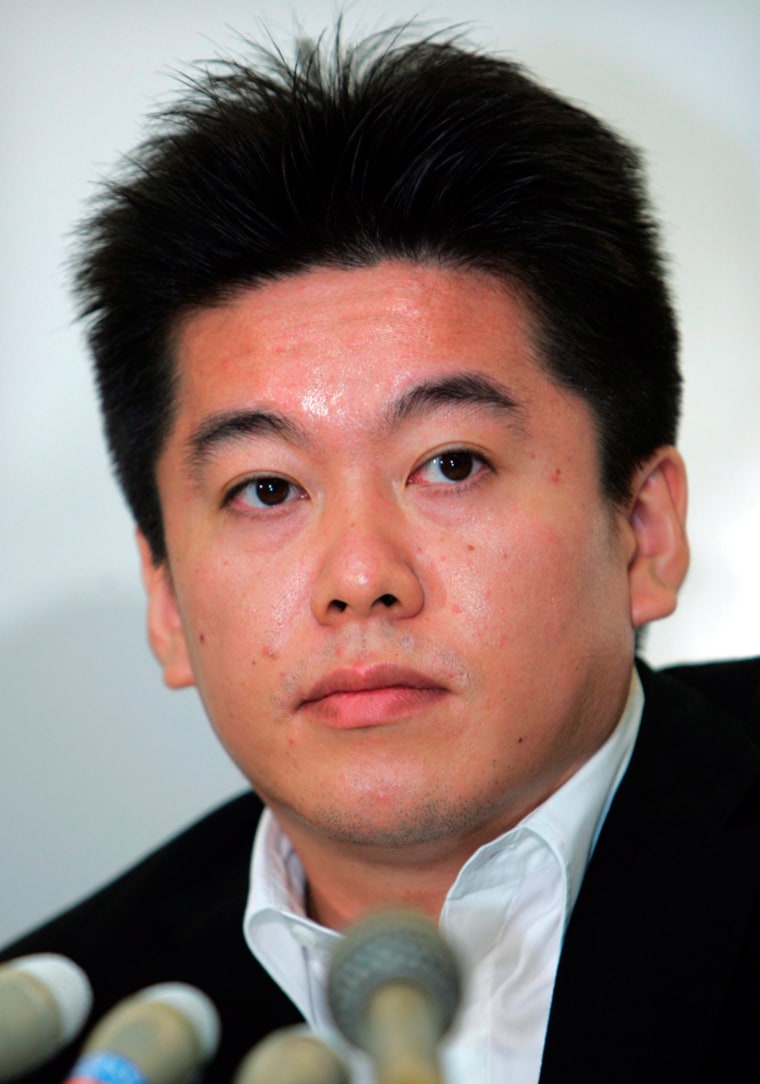A year after his Internet empire came crashing down, turning Japan's most famous dot-com mogul into a business pariah and celebrity defendant, Takafumi Horie and a captivated nation will learn Friday whether his name will be cleared.
The decision by the Tokyo District Court is seen not only as a verdict on whether the brazen 34-year-old violated securities laws but on how old-guard corporate Japan deals with a new generation of freestyling entrepreneurs.
The trial of Horie, founder of Internet services company Livedoor Co., opened last September and has dominated national headlines since, partly because of the millionaire's flamboyant, outspoken and sometimes tearful testimony.
But the public is also gripped by Horie's determination to fight the charges in a country where conviction rates are extremely high and most people plea bargain. Another former Livedoor door executive has already pleaded guilty to similar charges and is a key prosecution witness against his one-time friend and boss.
Horie tumbled from stardom when prosecutors raided his company last year and arrested him in January 2006. He was kept incarcerated for three months, but he did not sign a confession as most suspects here tend to do in exchange for lighter sentences.
As an up-and-coming business leader, Horie made waves as a cocky T-shirt-clad youngster who attempted flashy buyouts of old-school mainstays, including one of the Japan's biggest media conglomerates and a professional baseball team.
A dropout from the prestigious University of Tokyo, Horie was soon a tabloid regular with a penchant for dating actresses and nearly won a seat in parliament.
Thanks partly to this image, Livedoor skyrocketed from unknown startup to household name and became a darling of Japanese investors.
Framed?
It was those investors, many swayed by Horie's charisma into playing the market for the first time, who were burned the hardest when he was arrested and the stock tanked.
Prosecutors are now seeking four years in prison for Horie. They say he illegally ran a complex scheme of dummy companies and stock splits to artificially inflate Livedoor earnings and share prices.
Horie says he was framed by the jealous old-guard elite for rocking the boat.
Key to the verdict is how much Horie knew about such antics and whether he was aware of wrongdoing or conspired with the other executives.
The whole affair stirred up loud criticism of the government for failing to adequately monitor securities transactions and other financial practices because Livedoor's repeated stock splits and aggressive takeovers had been widely known.
Parliament passed a bill in June to tighten oversight of investment funds amid calls for stricter rules on the securities market, partly in response to Livedoor.
Japan's desire to prove it's getting tough may be one reason to bet on guilty.
"The regulators want to show that they are progressing toward rules-based, transparent, fair capital markets," said Morrison & Forester attorney Ken Siegel, adding that just years ago Horie may not have even faced a judge on such allegations.
